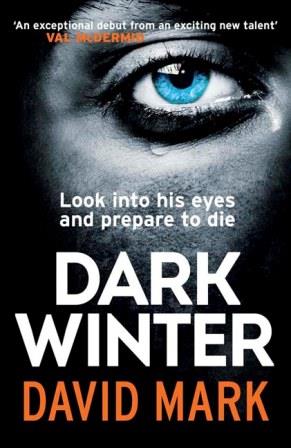
I’m always a little dubious when I’m told that ‘only’ one person can join the dots.
What, exactly, makes DS Aector McAvoy so special that he is the only police officer able to see a connection between three seemingly disparate murders? It seems to be his conscience and a determination, sadly not shared by all his fellow officers, to catch the actual killer, rather than the most likely suspect. I’m fairly sure this shouldn’t make him such an unusual police officer…but apparently it does David Marks’ vision of policing in Hull.
What’s it about?
A man who nearly died 40 years ago dies in eerily similar circumstances to his original near-death incident. Could this be a meaningful suicide perpetrated by a guilty survivor? Meanwhile a young girl is brutally murdered inside a busy church and it quickly transpires that she survived a similar attack as a baby. Could this be a bizarre coincidence? Well, this is a crime novel, so I think you can guess the answer to those two questions. When another survivor dies in eerily similar circumstances to those he had previously escaped, it appears that McAvoy’s bosses may finally be ready to listen to him. Of course, McAvoy is a sole survivor himself, so perhaps he won’t need to hunt too hard for the killer…
What’s it like?
Emotional. Reliant on coincidence and instinct. Violent. (One victim has her rapist’s initials carved into her genitalia.)
McAvoy just happens to be the man dispatched to inform the ex naval officer’s sister that his disappearance is now a death (his superiors like to keep him out of the way as punishment for ‘grassing’ on a senior officer last year); he also just happens to be first on the scene when the girl is attacked in the church and is struck by the killer as a result. This is how he is able to start making links between the two cases and his own experiences, and the story continues in much the same vein
If you don’t mind a few doses of coincidence then you’re likely to enjoy the intriguing premise. Who would want to kill sole survivors of terrible events? What possible motivation could they have? I actually really liked the final answer to this, though it is arguably as far-fetched as, well, everything else that happens in the story.
While McAvoy attempts to single-handedly manage the cases in the way he feels they should be handled, he brushes up against new boss, ‘Pharaoh’, in a unit rife with political tensions and ripe for backstabbing. Quite why there has to be sexual tension introduced between the characters I don’t know, especially since McAvoy practically worships his young wife and the proper storyline has to take a break at one point so they can have a baby related trauma. Is this frisson between the officers meant to emphasise the apparently corrupt / corrupting nature of the Hull police force or are we just to assume once again that a handsome man and powerful woman can’t work together without contemplating how much they might enjoy each other naked? Either way, it irritated me.
Final thoughts
This is a deeply emotional story. McAvoy wrestles with his conscience, his colleagues and his inability to always be there for his precious family (he abandons his son at a cafe to sprint to the murder at the church without a second thought) and even the killer is racked with emotion mid and post-kill. (‘There were tears in his eyes’, McAvoy notes, with the ‘sudden sense’ that this is important.) The resolution is interesting, though the final chapter is unnecessary, and if you like your crime thrillers violent and mildly philosophical, then this one’s for you.
This was one of my picks from Crimefest16 where I saw David Mark moderating a panel on cops and robbers. He was hilarious so it’s almost surprising to find his debut novel so sombre, but as he was formerly a crime reporter, I imagine little shocks him these days. As for DS McAvoy, he’s now on his 6th outing, ‘Dead Pretty’, so if you like the sound of him, you’ve plenty to catch up on.
‘Dark Winter’,
David Mark,
2013, Quercus, paperback